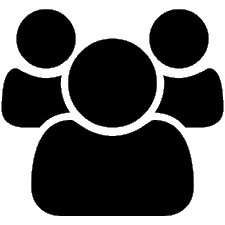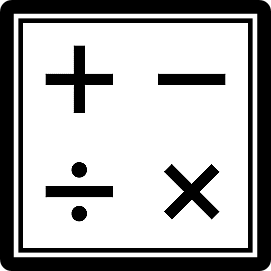CIS/291 (PC and Device Fundamentals)
Below you will see some useful resources to help you prepare for and complete your class successfully.
Course Textbook
Andrews, J., Dark, J., & West, J. (2017). A+ guide to hardware (10th ed.). Boston, MA: Cengage Learning
Check Your Work for Plagiarism - SafeAssign Instructions
Your assignment submissions will automatically be checked for plagiarism by SafeAssign, a feature in Blackboard. SafeAssign compares your submission to a database of student work and the internet and then generates an Originality Report that you and your instructor can review. Review the full SafeAssign instructions to learn more about this feature.
MindTap Support
Complete the Live Virtual Machine Lab Prerequisite and Advanced Hardware Simulation Prerequisite prior to beginning your lab assignments.
If you experience technical issues with MindTap/Cengage, you should first contact University of Phoenix Technical Support at 1-877-832-4867 to troubleshoot. If Technical Support cannot assist with the issue, the representative should contact MindTap/Cengage to help provide resolution. If this does not happen, you can contact MindTap/Cengage directly using the information below:
- Phone: 1-866-994-2427– Monday-Thursday 8:30am-9:00pm, Friday 8:30am-6:00pm, Saturday 11:00am-7:00pm, Sunday 4:00pm-midnight (all times are Eastern)
- Chat: available 24/7
- Webform Submissions: available 24/7
MindTap Assignments
There is nothing to submit in Blackboard for MindTap assignments. Your instructor will transfer all scores to the Blackboard gradebook. This might happen after the assignment due date. As long as you complete your homework by the due date, disregard any late notices you receive.
Getting Started – Learning Activity in MindTap only (not in Blackboard)
There are two learning opportunities for students in this course entitled “Getting Started with Virtual Machine Labs” and “Getting Started with Advanced Hardware Simulation.” There is no grade associated with this learning activity and it is not included in Blackboard; it is only in the MindTap course for students who want to understand more about the lab environment.
MindTap Mobile App
You can access the MindTap elements of this course using the MindTap Mobile App. Follow the UoP MindTap App Student Facing Instructions to access set-up and user instructions. You will receive an End User License Agreement when you launch into MindTap from your course. If this is your first time launching the tool, you will receive the EULA and be prompted to register.
Read Me First
Introduction
Technology changes fast, making it a challenge to stay current and informed. As new computers and components hit the market, existing ones are quickly considered to be outdated and obsolete. Yet, despite ongoing updates and innovations, the basic architecture of a computer remains the same.
Obtaining a foundational understanding of computer architecture, including its sub-systems and components, enables you to follow and adapt to the changes within a continuously evolving computer industry. This course and CIS/293 are aligned with the requirements of the CompTIA A+ 220-1001 exam.
Course Overview
This course is designed to introduce you to the fundamental aspects of personal computer (PC) hardware architecture, components, and configuration. It provides a vehicle for understanding preventive maintenance, repair, and the upgrade of personal computers. Additionally, you learn how individual components of computer systems interact to create a complete and functional machine.
Main Concepts
In Week 1, you explore how to configure laptop hardware, components, and common devices – that is, you learn about the contents “in the box” that make the computer work. You begin identifying components and start building a library of information sources. You also use what you have learned and the initial list of resources to identify compatible replacement parts for a current system.
Week 2 coursework involves reviewing procedures for installing and configuring hardware components on a system as well as motherboards. We discuss potential challenges you may encounter during this process and how to overcome them.
During Week 3, you explore the best practice methodology to resolve problems. You also learn how to troubleshoot problems related to motherboards and RAM (Random Access Memory). You learn best practices for maintaining hardware as well as how to diagnose issues and troubleshoot various hardware performance issues.
In Week 4, you consider the power supply and methods of system cooling. You consider how to select them based on performance needs, current system requirements, and system capabilities. Troubleshooting these devices is also covered.
Finally, in Week 5, you consider storage devices and troubleshooting. You learn about the different types of storage including SD storage, portable media, hard drives, and RAID (Redundant Array of Independent Disks).
This Course in Relationship to the Program
This course is an introduction to computer support fundamentals with a focus on PC hardware. Understanding the components of a PC is a foundation for many other IT topics and technologies. Both this course and CIS/293 are aligned with the requirements of the CompTIA® A+ certification.
Career Connections
The skills you learn in this course are essential for entering the information technology (IT) field. Even if you do not plan to work as a computer technician, there is a good chance you will work for an organization that relies on the basic understanding of computer architecture to develop, enhance, and help the organization grow. If you are a manager, a project leader, or work on an IT project team, understanding computers and their components enables you to work effectively within the organization.
Gradebook
Your faculty manually transfers grades from MindTap into Blackboard. This may happen after the due date in Blackboard.
Course Software & College of IS&T Resources
Access IT Central to review the College of IS&T Resources and for additional course software requirements.
Note: We do not recommend trial software versions because they expire.
Writing Resources
Access writing resources in the Center for Writing Excellence.
Academic Policies & Procedures
Read the Blackboard Academic Policies & Procedures for information about the weekly schedule, assignments and grades, attendance, academic integrity and requirements, and disability services.


